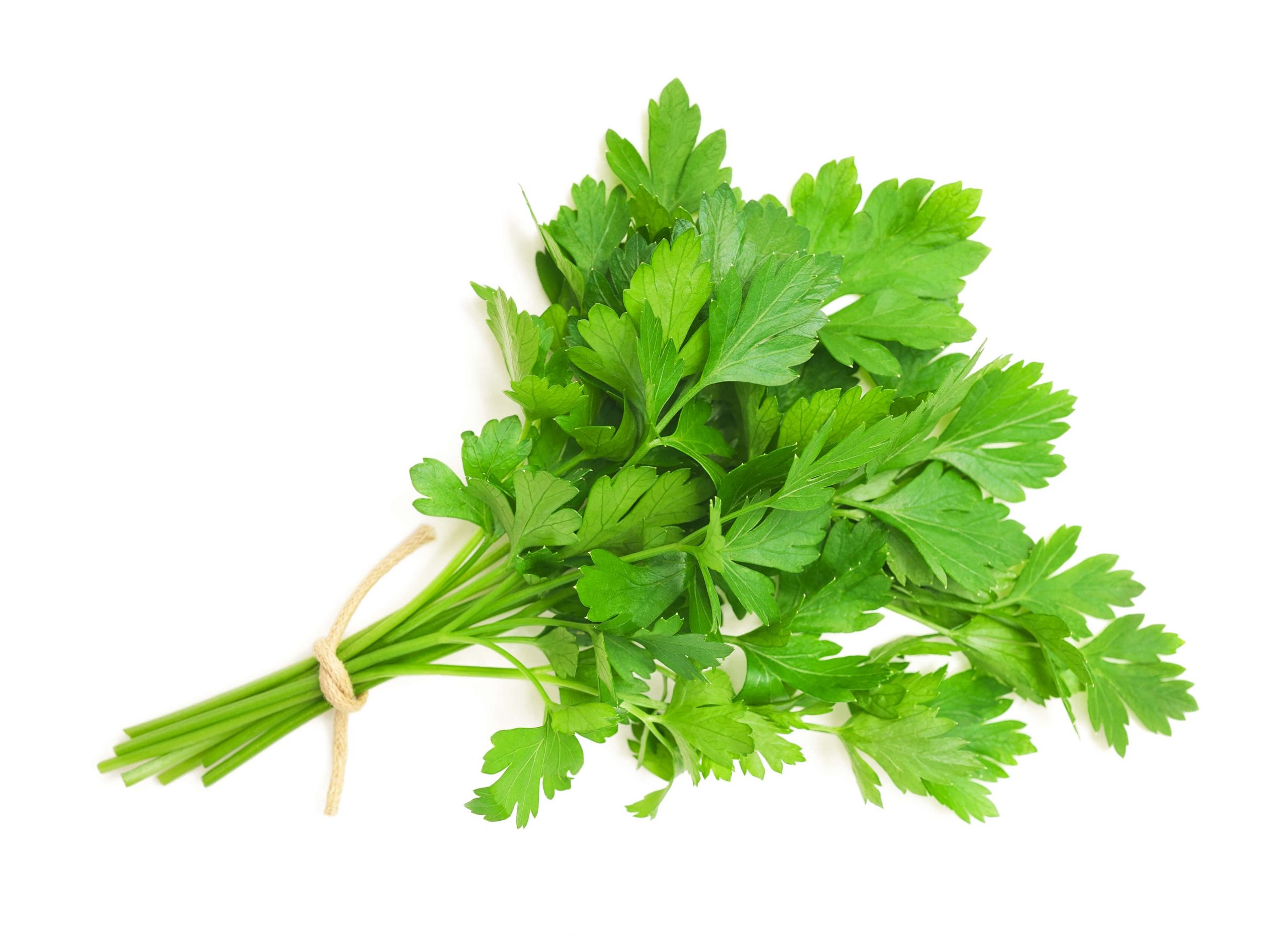Petroselinum crispum or parsley is a medicinal and culinary herb that originated from the Mediterranean. Furthermore, its seeds, stems, and leaves are utilized in various recipes.
Today, Europeans, Americans, and Middle Eastern people use parsley in most of their dishes to increase the taste of foods such as fish recipes, salads, and soups. Ironically, a few individuals have used parsley without understanding its benefits. Notably, it discourages people from developing certain health conditions like kidney problems, cancer, heart disease, and osteoporosis for lacking essential nutrients. A significant population has become victims of these conditions because they have not known parsley herb. The unveiling of facts concerning this herb solves these problems. In our article, we will help you understand the benefits of parsley.
Contains anti-cancer properties
Parsley contains high flavonoids that are considered to have anti-cancer effects. These flavonoids decrease oxidative stress and prevent cell growth. Certain research established that parsley seeds contain a flavonoid called apigenin that promotes the destruction of cancer cells and lowers tumor sizes. Extended studies on cancer cells indicated that apigenin shows anti-metastasis, anti-inflammation, and anti-proliferation effects in specifically colorectal cancer. Furthermore, studies indicate that luteolin, an anti-carcinogenic flavonoid is in parsley. Also, this compound exhibits preventive properties, especially colorectal cancer. Additionally, it packs carnosol, which is considered effective in diagnosing prostate, colon, skin, and breast cancer.
Improves kidney health
Parsley is known as a natural diuretic that helps eliminate germs and toxins from your body. According to research, people taking parsley seed products are likely to urinate more than those who take plain water. Further, this herb prevents the potassium and sodium pump, often involved in controlling urine in kidneys. A separate study indicates that parsley contains nephroprotective properties with renal complications. However, kidney stones can develop from mineral deposits when urine is concentrated. Studies state that treatment with parsley reduces urinary protein excretion and calcium while elevating urination and urinary PH. The presence of vitamin C, carotenoids, and flavonoids induces the anti-inflammatory properties into parsley. It promotes kidney health by lowering blood pressure. Besides, it contains nitrates that expand the blood vessels, thus reducing blood pressure spikes and boosting blood flow. Evidence confirms that nitrate-dense foods such as parsley maintain good blood pressure amounts.
Controls blood sugar
Apart from diabetes, increased blood glucose levels can be caused lack of exercise or an unhealthy diet. Spiked blood glucose levels escalate chances of heart issues like diabetes, heart disease, metabolic syndrome, which symptoms include elevated blood sugar or cholesterol and insulin resistance. Parsley and its contents have myristicin, a powerful antioxidant, which helps regulate blood glucose amounts. Besides this, it reduces inflammation and insulin resistance. According to research, people who consumed parsley products experienced more pancreatic function improvement and decreased blood glucose levels.
Boosts heart health
Heart conditions such as strokes and heart attack results in death in most cases. Smoking, an unhealthy diet, excess alcohol intake, and no exercise contributes to heart disease. Parsley contains carotenoid antioxidants that favor heart health by lowering heart ailment risks. Studies show that carotenoid-dense foods improve risks such as chronic inflammation, bad or LDL cholesterol, and high blood pressure. In this regard, it was found that carotenoids decrease coronary artery ailment risks. People have used parsley to diagnose hypertension. This herbal food contains many flavonoids, lowering cardiovascular disease risks and boosting hearts’ health. It also provides folic acid, which supports the hearts’ health. However, low folate intake is dangerous to the heart; thus, adding parsley to the diet is beneficial.
High nutrition profile
Analytically, parsley’s 8 grams or 2 tablespoons offer 2 calories, 154% RDI vitamin K, 16% RDI vitamin C, 12% RDI vitamin A. This herbal food has a low number of calories yet is packed with essential nutrients like Vitamin C, K, and A. Science shows that vitamin A is a vital nutrient serving an important purpose in the eyes’ health. In addition, it is essential for improving your skin and helps you avoid acne. Besides, Vitamin K favors hearts’ health and bones. Notably, 8 grams or 2 tablespoons provide enough vitamin K required in the body. Also, the nutrient is vital for healthy blood clotting, thus inhibiting excessive bleeding.
Furthermore, this food has vitamin C, which boosts your heart’s health and supports the immune system. This nutrient functions as a strong antioxidant, preventing body cells from the destruction caused by free radicals. Moreover, parsley has significant amounts of calcium, iron, folate, potassium, and magnesium, which are still essential in the body.
Boosts body immunity
Parsley is loaded with anti-inflammatory and antioxidants compounds such as flavonoids. The presence of vitamin C is essential in boosting the human immune system. Also, apigenin combats inflammation. Finally, flavonoids like quercetin and kaempferol inhibit cellular damage and oxidative stress.
Anchors bone health
Human bones require minerals and vitamins in fluctuating amounts to keep strong and healthy. Luckily, parsley contains vitamin K, a vital nutrient for strengthening bones. It does this by anchoring osteoblasts, bone-developing cells. Further, this vitamin stimulates particular proteins responsible for elevating mineral density. Scientists explain that bone density is essential because its reduction is linked with an elevation of fracture risks, particularly for the elderly. Researchers claim that the consumption of dishes rich in vitamin K might lower your fracture risks. A certain study established that greater vitamin K consumption was related to a 22% lower fracture risk. Usually, taking foods rich in vitamin K might be lower than the required amounts to reduce fracture risk and boost bone mineral density. Thus, consuming foods such as parsley might aid bone health.
Conclusion
Parsley packs vitamins C, K, and A and antioxidants. The important compounds and vitamins found in parsley might boost body immunity bone health, control blood sugar, combat cancer, and improve kidneys. Additionally, this powerful herb is easily incorporated into various sweet foods. Notably, they maintain freshness for about 14 days, while dried ones might extend to 12 months. Further, adding them to a dish can improve body health while increasing the taste of favorite recipes. For instance, fresh or dried leaves can be conveniently incorporated into sauces, marinades, salads, and soups. Therefore, let us embrace parsley and reap the best results.
- WHY CAN DRINKING ALCOHOL TRIGGER ANXIETY? - January 7, 2023
- WHAT IS ORGASMIC MEDITATION? BENEFITS + HOW TO - January 7, 2023
- THE BEST WAYS TO PREVENT WEIGHT GAIN THIS WINTER - January 6, 2023









